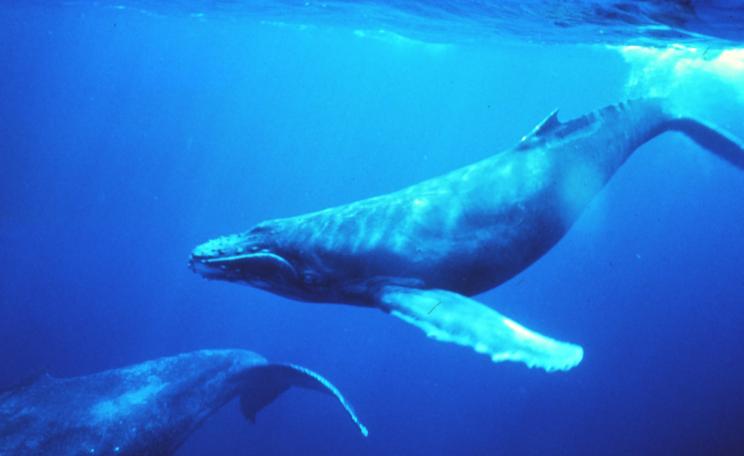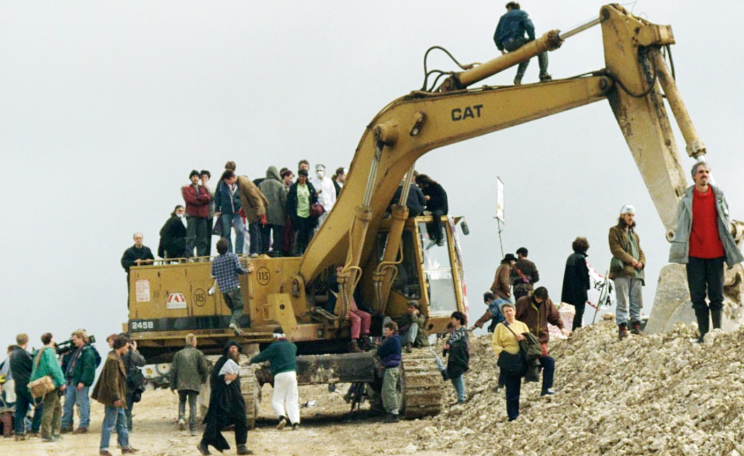-
Captive cetaceans wake up every day living without their families, confined to small concrete tanks, and forced to perform for human entertainment.
Within these conditions they face issues such as isolation, harmful chemicals, and dorsal fin collapse all leading to an eventual early grave.
Wild and Free Beings hopes to combat this cruelty. Our recent launch outside Manchester Town Hall saw people from across the North West unify with an aim to spread an understanding of the struggles faced by animals in marine entertainment centres across the world.
Cetaceans
Attendees were encouraged to promote the organisation's three simple founding values: a world where every cetacean has freedom; inspiring people from all around the world to understand the reality of captivity; putting an end to cetacean captivity through education and awareness.
Cetaceans are a family group of aquatic mammals made up of whales, dolphins, and porpoises. Within this group are around 90 species that can be divided into two groups; baleen whales and toothed whales.
When most large whales open their mouths, you can see comb like bristles called baleen plates that hang from the upper jaw. This is allows them to filter-feed, meaning, when a whale has caught prey and water in their mouth the water then pours out, but the baleen filters out the prey for the whale to swallow.
Blue, humpback, gray, and right whales are just some that are included in this group of Baleen Whales.
The majority of whales and dolphins belong in the toothed category. They feed on prey in a similar manner to most carnivores. These include the dolphins, the porpoises, the beluga and narwhal
Choice
We believe in freedom, and beyond that choice. All living things should have the opportunity to choose the course of their lives.
Whilst the capacity to do this differs between different animals, with different levels of intelligence, their opportunity for choice shouldn’t be taken away simply to provide entertainment to humans.
Just like humans, cetaceans are family orientated, maintaining lifelong bonds with their pod. Marine parks break these bonds firstly by stealing animals away from their families in the wild, and secondly, stripping offspring away from their mothers in captivity for financial development in other parks.
Taking a child from a mother, as within humans, can have a serious affect on the wellbeing of a Cetacean. Depression as a result of this can be common within Cetaceans in captivity.
These feelings are often heightened by the conditions the animals are kept in. In the wild, cetaceans can swim up to 140 miles per day. In captivity, they would have to swim more than 1,400 times around their tanks to travel as far as they would in the wild.
Unnatural conditions
Their pools are often completely covered and tiny. In total darkness and isolation, the creatures develop fear, stress, and mental illness.
In the same way environment can have drastic impact on the development and lifestyle of a human, Cetacean development can be severely hindered through these unnatural conditions.
In the wild, an Orca can live up to 80 - 90 years old. In captivity, 92 percent of orcas die before the age of 25.
Dolphins living in the wild can live for at least 40 years, however in captivity, statistics show the average lifespan of a captive Bottlenose dolphin is a mere 5 years.
This difference in lifespan seems, to us, an unacceptable cost to justify captive entertainment from Cetaceans.
How?
Wild and Free Beings was born from passion for seeing freedom for creatures unable to voice their own concerns.
Whilst this is also true for many other animals and people across the world, currently our impact can be maximised through focused campaigning for this group of animals for whom we have great love.
Our journey has recently begun, having launched recently with an event raising awareness of this issue. We don’t, however, plan to stop there.
We plan to continue this work and inspire a new generation with a love for these creatures, drawing on the founder's passion for music and creative arts. She plans to combine our cause with her skills from a degree in Musical Performance from the prestigious Royal Northern College of Music and a wealth of experience and contacts within the music industry.
Music is a powerful tool. We have written a range of songs designed to highlight issues in an accessible and engaging way, the first snippet of which can be heard on the highlights video from our recent event in Manchester.
Change
Alongside this we are developing school workshops and lessons. These will incorporate the music in an effort to inspire the next generation, raising their awareness of issues around animal welfare.
Erica Memphis, founder of Wild and Free Beings, said: “Through engaging and interesting approaches, we believe we can help educate the public about the fascinating creatures of the sea and why keeping them in tiny concrete tanks is wrong.
"The time for captive animal entertainment is over. We now step into a time of freedom. Together, we can put an end to their suffering.”
It takes time to bring change. Hard work, commitment, and a great deal of nerve are needed to stand by what you believe.
Though change won’t come quickly, in time, the importance of looking after these creatures will be widely acknowledged. Until then we will continue to step out into change, in whichever way we are able.
Get involved
We’d love your support and to hear what you think.
If you’d like to find out more about us, sign up to our mailing list, or get in touch visit our website or connect on Facebook or instagram.
This Author
Peter Bonnebaigt is operations manager at Wild and Free Beings. He draws on a wealth of experience managing and growing businesses, events, and campaigns across the world.




